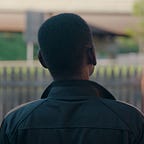Our philosophy
Written by Loch Phillipps
Kai (not his real name) showed us the dent in his car. It was small, but he was worried. As a recently resettled refugee he feared that the accident — incurred while driving alone with a new learner’s permit — would lead to his deportation. On camera, he communicated to us his persistent fear of being punished for his actions, as well as his sense of isolation, common to refugees.
The Refugee Center was there to help. Abdelshakour and Lisanne at the Center were able to help reduce his fine and clear his record. There is a system in place that recognizes that refugees will need certain kinds of support, that there is much they won’t immediately understand. The people behind that system have experience and knowledge of the steep challenges faced by refugees. There’s even a traffic safety person on staff at the Refugee Center!
Talking to refugees like Kai and the people who make up the networks of refugee support in our country gives me hope. I’ve learned in making this film that the infrastructure of refugee support networks is a strong and critical piece of the immigration puzzle. I think of it as a safety net built on feedback loops that keeps refugees on a track of successful integration here.
The day-to-day job of helping people succeed in an increasingly complex world has a significant impact. I think it’s heroic to show up as needed in someone’s life and help them turn themselves around. This has been a focus of my work over the past 20 years. To me, the Refugee Center is staffed by heroes. To me, a lot of the work I’ve witnessed around the world in my work for the likes of UNICEF, IRC, EDF, is work that really matters. Preventing problems from happening in the first place is arguably the most successful strategy we have!
But the people working on the prevention side are largely invisible to the rest of our world. Think of firefighting. Yes, firemen are heroes. They save lives. But so do the folks who install fire detectors and keep them working. Who thanks them?
The big challenge in making the kinds of films I’ve been making is that — similar to installing fire alarms — eliminating iodine deficiency, helping ex-cons reenter society, moving families out of poverty, guiding refugees towards integration, etc. is not the sexiest of work. There is no fire to battle with all the accompanying adrenaline rush. No, the heroes I shine a light on show up every day in people’s lives. They work to change systems that oppress too many of us. Really, they do the work that will save us, if we are to be saved. Let’s face it, if we don’t get into prevention, we’re screwed as a species. We simply have to stop more fires from happening in the first place. Time is running out.
If you are patient and watch what the work of prevention produces over months and years, it’s astounding. China dropped levels of iodine deficiency by something like 80%. and direction in his life. Fishermen are working to save fisheries . As for Utica, nationally known pollster and Utica native John Zogby says it best, “Refugees aren’t just survivors. They’re a pretty good source of thrivers too.” In helping refugees transition from survivor to thriver, the Refugee Center does difficult — but amazing — work. That work is helping Utica, a struggling rust belt city, reinvent itself. We are pleased to have captured these heroes and their invaluable work in our film.
Originally published at https://www.lastrefugedocumentary.com on January 21, 2020.
